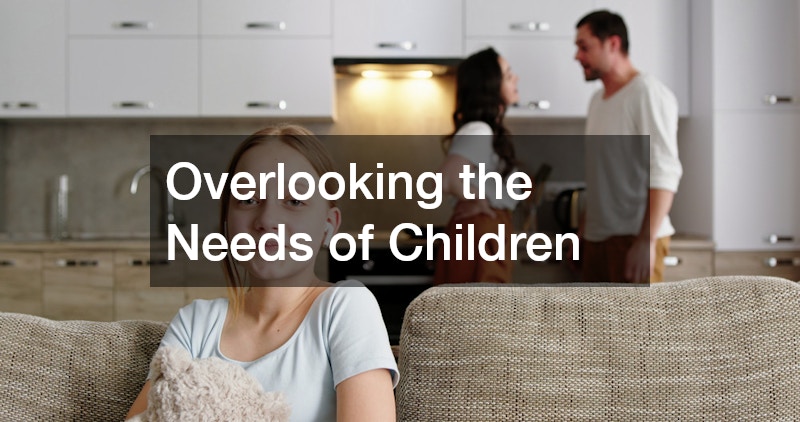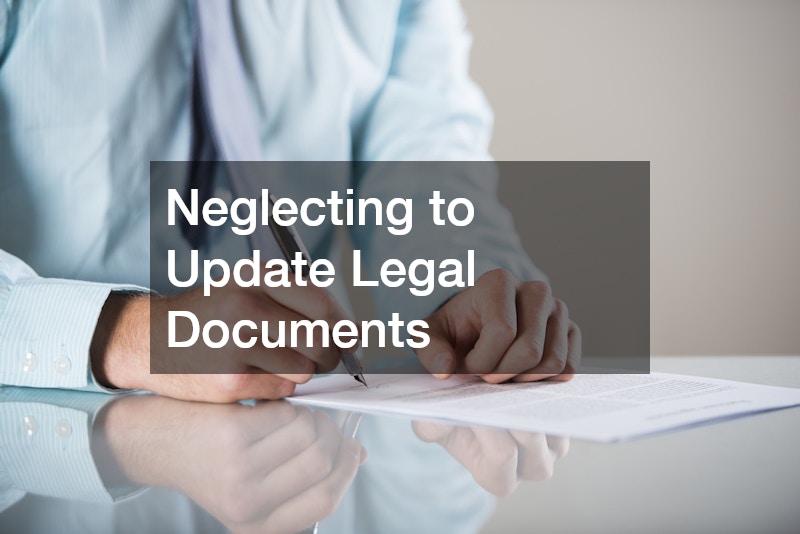Filing for divorce is never easy. It’s a deeply personal decision that can come with a flood of emotions, financial uncertainties, and legal complexities. Whether the process begins amicably or under strain, most people find themselves overwhelmed by the sheer number of decisions to make and the long-term consequences those decisions may bring. Unfortunately, even the most well-meaning individuals can make critical mistakes during this time, which can prolong the process, increase costs, or negatively affect relationships with children and family.
Understanding what not to do when you file for divorce is just as important as knowing the right steps to take. From legal missteps to emotional pitfalls, being aware of common errors can help you navigate the process with more clarity and confidence. This article explores some of the biggest mistakes people make during a divorce and offers insights to help you avoid them.
Ignoring Legal Advice Early On

One of the most common and costly mistakes people make when they file for divorce is neglecting to consult with a qualified legal professional right from the start. Whether due to the desire to cut costs, the hope for a peaceful separation, or anxiety about legal confrontation, many individuals try to handle things on their own. While this may seem like a practical approach initially, it often results in confusion, missed deadlines, and decisions made without a full understanding of legal rights or long-term consequences.
Without the guidance of an experienced attorney, individuals can unknowingly agree to terms that are deeply unfavorable or even unenforceable. Critical issues like property division, spousal support, and child custody require clear legal parameters, and informal agreements often fall apart under scrutiny. A qualified lawyer not only helps protect your interests but also ensures that every aspect of the divorce is handled correctly, minimizing the risk of future disputes or costly revisions.
Reaching out to a family lawyer early in the process gives you a clearer understanding of your rights and responsibilities. These professionals are equipped to guide you through the legal maze, identify any red flags, and help ensure that your paperwork is in order. Even if the divorce seems straightforward, having legal support can make the difference between a smooth transition and years of financial or emotional fallout.
Failing to Understand Your Finances
Another major misstep during a divorce is failing to take a full and honest inventory of your financial situation. It’s easy to overlook certain assets, debts, or income streams, especially when emotions are high and you’re focused on immediate concerns. However, having a clear financial picture is essential to making informed decisions that will affect your life for years to come.
Many people underestimate the long-term financial implications of separation, such as reduced household income, increased living expenses, and legal obligations like child support or alimony. When you file for divorce, not preparing for these changes can result in lasting financial instability, damaged credit, or the need for drastic lifestyle adjustments. A thoughtful financial plan, created with the help of professionals if needed, can make the difference between starting over with confidence or facing continued financial hardship.
In some cases, individuals may even find themselves overwhelmed with debt and unsure how to manage it post-divorce. This is where consulting with a bankruptcy law firm can be especially beneficial. These firms can offer strategic advice on how to handle joint debts, protect your credit, and determine whether bankruptcy might be a necessary option. Understanding your finances and seeking expert help when needed puts you in a much stronger position to make informed, forward-thinking decisions.
Letting Emotions Drive Decisions
Divorce is an emotionally charged process, and it’s natural to feel anger, sadness, betrayal, or anxiety. However, letting those emotions dictate your decisions when you file for divorce can lead to regrettable outcomes. Emotional choices, like fighting over minor possessions, refusing to negotiate, or using children as leverage, can escalate conflict and draw out the process unnecessarily. Worse, these reactions can cloud your judgment and make it harder to focus on what’s truly important: your future.
Seeking counseling during this time isn’t a sign of weakness; it’s a smart, stabilizing move. A licensed therapist can help you manage emotional upheaval, recognize unhealthy patterns, and approach decisions with a clearer, more grounded mindset. When your emotions are in check, you’re better equipped to protect your interests and maintain civility throughout the divorce proceedings, which is especially important if children are involved or co-parenting is on the horizon.
Overlooking the Needs of Children

In the midst of legal negotiations and emotional turmoil, it’s all too easy for parents to unintentionally overlook how the divorce is impacting their children. While adults may be preoccupied with financial arrangements or legal strategies, children are quietly processing a profound change in their world. Unlike adults, they often lack the emotional vocabulary or maturity to express what they’re feeling, which can lead to internalized stress or behavioral changes.
When you file for divorce, it’s important to remember that your children are also experiencing a major life transition, often one they didn’t choose or fully understand. Miscommunication, abrupt shifts in living arrangements, or witnessing parental conflict can leave kids feeling anxious, isolated, or even responsible for the breakup. Taking deliberate steps to prioritize their emotional well-being, maintain routines, and reassure them through age-appropriate conversations can make a lasting difference in how they cope and heal.
Taking steps to prioritize their emotional and developmental needs can make a lasting difference. This might include working with a child care center that specializes in transitional support or provides stability during custody shifts. It’s also vital to maintain consistent routines, open communication, and age-appropriate explanations about what’s happening. When children feel secure and supported, they’re more likely to adjust in healthy ways and maintain strong relationships with both parents.
Hiding Assets or Income
Attempting to conceal income or assets during a divorce is a serious and often costly mistake that can backfire in more ways than one. In an effort to protect what they believe is rightfully theirs, some individuals may downplay their earnings, shift money to undisclosed accounts, or temporarily transfer property to friends or relatives. These tactics might seem clever in the moment, but they create a legal trail that can be uncovered, and the damage to one’s credibility can be hard to repair.
When you file for divorce, full financial disclosure is not just expected; it’s legally required. If the court discovers that assets have been hidden or misrepresented, the consequences can include heavy penalties, an unfavorable settlement, or even being held in contempt. Beyond the legal repercussions, this behavior often casts a shadow over the entire case, influencing decisions about custody, support, and division of property, and may result in the judge siding more favorably with the honest party.
Working openly and honestly with experienced divorce lawyers is the best way to protect your interests without resorting to deception. Lawyers are trained to help you navigate complex financial disclosures and advocate for a fair outcome. Trying to hide assets not only risks legal penalties but can also damage your standing in custody decisions or support negotiations. Transparency and sound legal advice are always better than shortcuts that come at a high cost.
Rushing the Divorce Process
When emotions are high, some people try to get through their divorce as quickly as possible, thinking that speed will reduce pain or conflict. While the desire to move on is understandable, rushing through legal, financial, or custodial decisions can lead to long-term consequences. When you file for divorce, it’s important to take the time necessary to fully understand your rights, obligations, and the best options for your future.
This is especially true for those who may be remarrying or already making plans for a new chapter in life. It’s tempting to get swept up in planning, like shopping for bridal gowns, before the divorce is finalized. However, premature decisions can complicate legal proceedings, raise questions in court, or create emotional confusion for children and extended family. Giving yourself space to complete the divorce thoroughly and thoughtfully helps lay the groundwork for healthier future relationships.
Neglecting to Update Legal Documents

Many people assume that once the divorce is final, all legal ties are automatically severed. In reality, there are many legal documents that may need to be updated, including wills, insurance policies, retirement account beneficiaries, and powers of attorney. Failing to update these can leave your ex-spouse with unintended control over important aspects of your life or estate. This is a critical step that should be taken soon after you file for divorce.
This is even more essential for individuals going through or recently completing an immigration process, either for themselves or a spouse. Divorce can directly affect immigration status, visa eligibility, and sponsorship obligations. Leaving documents untouched could lead to complications or delays with U.S. Citizenship and Immigration Services (USCIS). Consulting both your attorney and an immigration specialist ensures that everything is aligned with your new legal status and personal intentions.
Using Social Media Recklessly
Social media can be an emotional outlet, but during divorce proceedings, it can also become a liability. Posting about your ex, venting frustrations, or sharing details of your legal case can be used against you in court. Even something as seemingly harmless as posting vacation photos or new purchases can raise questions about financial integrity or parenting priorities when you file for divorce.
A custody lawyer will often advise clients to significantly limit or monitor their social media activity, especially when children are involved. Anything posted online can potentially influence custody arrangements, support claims, or the overall tone of negotiations. To protect yourself, it’s best to keep a low digital profile and assume that anything you share could end up in front of a judge. A little restraint online can go a long way in protecting your credibility and case outcomes.
Refusing to Communicate with Your Spouse
Divorce doesn’t have to mean cutting off all communication, especially if there are children, shared assets, or mutual obligations involved. Some people make the mistake of refusing to speak with their spouse, thinking it will reduce conflict or assert control. In reality, a lack of communication can slow down the process, increase legal fees, and escalate misunderstandings. When you file for divorce, a cooperative approach can save time, money, and emotional strain.
This becomes even more relevant when long-term family responsibilities are at play, such as caring for aging parents or coordinating with an assisted living facility. If both spouses are involved in decision-making for an elderly parent or shared dependent, open communication is essential to avoid confusion or neglect. Learning to engage constructively—perhaps through a mediator—can help ensure that life’s other obligations aren’t disrupted by the divorce process.
Skipping Professional Mediation or Counseling

While it’s tempting to handle things on your own, skipping professional mediation or counseling can be a costly mistake. These services are not just for high-conflict cases—they’re valuable for nearly every divorce, helping both parties clarify their goals, resolve disputes, and maintain a respectful tone throughout the process. When you file for divorce, engaging neutral professionals can ease tensions and lead to better long-term outcomes.
For example, a moving company may be hired to help one party transition out of the family home. Without proper mediation, disagreements over what items belong to whom or the timing of the move can turn this into a flashpoint. Mediation can help establish clear boundaries and agreements that reduce conflict during major transitions. Investing in professional guidance now often prevents emotional and financial damage down the road.
Divorce is not just a legal process—it’s a deeply personal journey that affects every part of your life, from your finances and living situation to your mental health and family dynamics. While there’s no way to make it entirely painless, avoiding common mistakes can make the process more manageable and lead to a more stable future. Whether you’re just beginning to consider divorce or are already in the thick of it, awareness is one of your greatest tools.
By taking time to reflect before you file for divorce, you give yourself the opportunity to proceed with more clarity and control. Small steps can have a lasting impact, from staying organized and seeking professional advice to prioritizing your children’s needs and guarding your digital footprint. No one gets through a divorce without challenges, but with the right mindset and support, you can come through stronger, wiser, and more prepared for what comes next.


